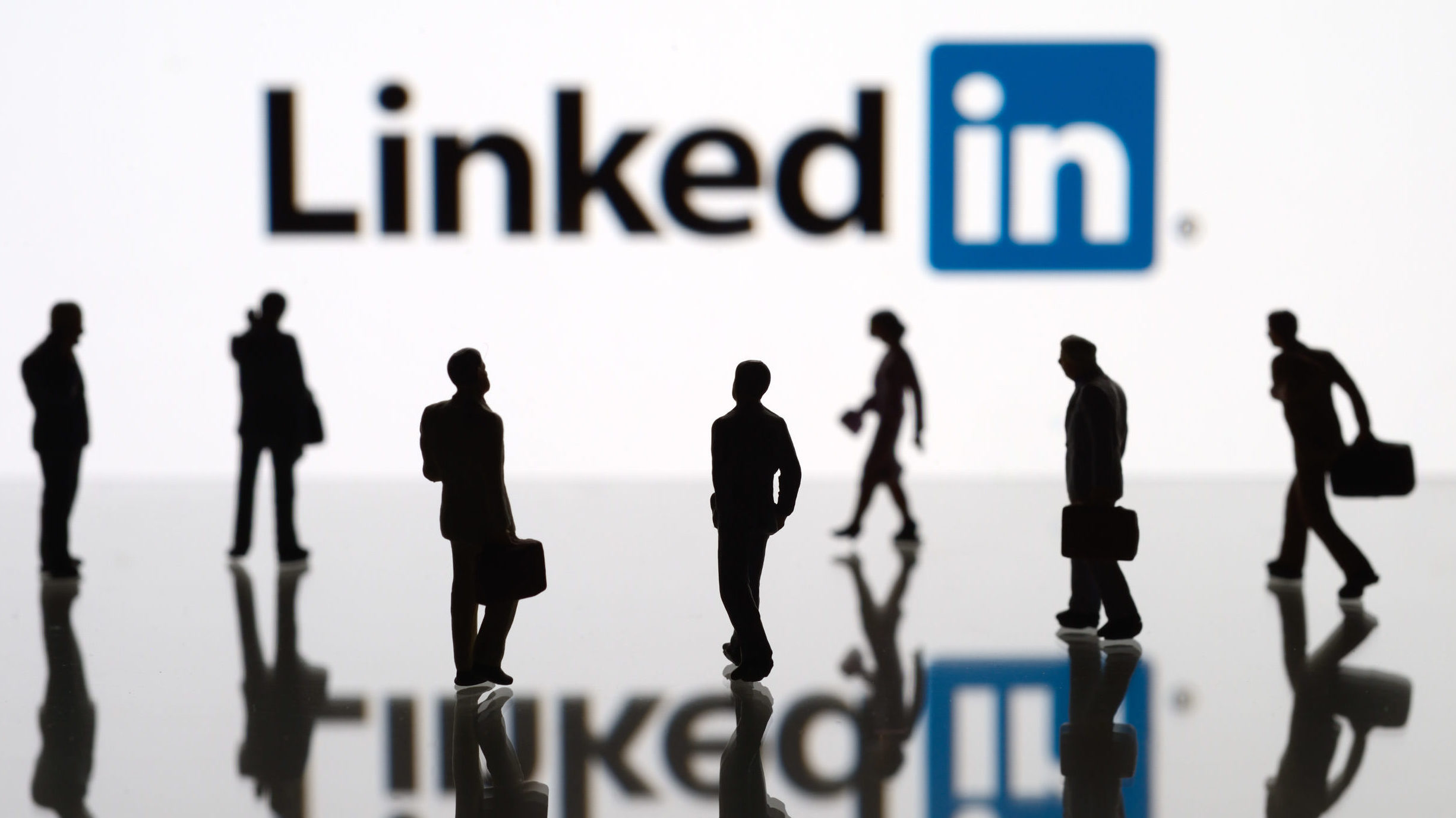The most powerful tool available for hospitality professionals looking for their next job might be there waiting right on their phones. Social media apps are one of the easiest ways to connect with your network, find job listings and market yourself—if you do it right. Smart Meetings asked career coaching experts for their secrets on each of the platforms.
Optimize Your Profile
 Facebook Groups can be business-focused and have a lot of functionality for industry-specific topics, says Luann Edwards, global strategic marketing consultant and founder of Socially Professional. The right groups can be really active, with an engaged membership, and provide ample networking opportunities.
Facebook Groups can be business-focused and have a lot of functionality for industry-specific topics, says Luann Edwards, global strategic marketing consultant and founder of Socially Professional. The right groups can be really active, with an engaged membership, and provide ample networking opportunities.
More: Job Hunting During COVID: What Meeting Professionals Need to Know
Twitter is a way to be seen in the industry and follow trends. Instagram works for people in visual industries.
But LinkedIn, a platform that bills itself as the world’s largest professional network, with more than 706 million users in more than 200 countries, seems like the right place to start a job search. Edwards suggests approaching the platform with the eyes of the recruiter you want to impress.
The first step is to let potential hirers know you are available. Enable the #OpentoWork feature—the green swish that has become so trendy during the pandemic on profile picture frames. If you haven’t quite left your previous employer, you can set your profile to show recruiters you are looking, what job titles you are interested in, where you would like to work and when you would like to start—all without showing this info to your current employer.
You will also need to update your profile. Edwards likes researching what others in the role you aspire to are saying on their pages. Update your description using keywords to paint a picture of the unique value you bring. That way, when you go into full networking mode, people can tell at a glance how you might fit into their organization.
Tracy Timm, founder of The Nth Degree Academy and author of the upcoming book Unstoppable, calls this step “discovery”—digging up everything that makes you tick. What are the commitments you have, your vision for an ideal life and the things you need to live the life you have chosen?
Then try to uncover your “ninja skills,” both your natural abilities and the life experiences and training that have nurtured your abilities over time.
This is probably not something you want to do alone, or in a couple of hours. Ask friends and former coworkers what it is you bring to the table. Write it down and try to get some objectivity around this picture of you.
The next step is to move from vision to reality and articulate your strengths—so you stand out in the noise of the piles in recruiter inboxes.
Career Pivots

Many meeting professional skills will apply to other careers, in and out of the events industry. Timm calls the process of relating job skills from one role to new environments (in places where they may not look relevant) “making the unbelievable believable.”
Kimberly Montoya, founder of Twenty 156 Events and a wellness coach with VeryBestYou (see sidebar below), has some good news for meeting professionals looking to take those skill sets to another industry. “A lot of your skills go beyond planning an event,” she affirms.
More: 4 Ways to Spice Up Your LinkedIn Profile
You engage in project management, negotiation and a host of other specific activities, for starters. It is important to break that down and recognize the individual skills—and how those can be applied to other jobs and other areas of life. Update your LinkedIn profile and your resume with those transferable keywords and watch all the inquiries come in.
Expand Your Reach
Edwards advises making your skills more visible by posting thought-leadership pieces, engaging with posts, answering questions and joining event-related groups, as well as following popular hashtags and company pages. “That will keep you top of mind,” she says.
Finally, ask for referrals. “Your network is full of referral sources,” Edwards says. “This is no time to be shy.”
Timm describes meeting professionals as exceptionally well connected. “Most are just a couple of degrees separation from anyone they might want to talk to; now is the time to ask for that next layer of connection.”
Make Calculated Asks
 Edwards suggests being very specific about what you are looking for, because that will help your network help you. Be prepared with a detailed ask, such as, “I would love to hear about opportunities in [specific field] in [specific geographic area].”
Edwards suggests being very specific about what you are looking for, because that will help your network help you. Be prepared with a detailed ask, such as, “I would love to hear about opportunities in [specific field] in [specific geographic area].”
Timm agrees that narrowing the focus of what you are looking for makes the task less daunting and increases odds the job you accept will be one that fits your long-term goals. The best way to get what you want is by being consistent, specific and hyper-focused in how you market yourself on all platforms.
Practice this question until it sounds natural: “I am looking for a role doing [insert job duties you have identified where you can bring value]. Do you know anyone who does that, and can you introduce me to [person you have identified]?”
Being specific has another advantage. Instead of asking someone if you can “pick their brain” for some vague knowledge that could take an unspecified amount of the person’s time, you can message them and ask for a specific thing (review my resume, make an introduction, give a recommendation on LinkedIn).
“Make it easy and your former colleagues will be happy to help,” Timm says. “It’s not like we are all going out for coffee in the middle of a pandemic anyway.”
Timm describes LinkedIn requests as low risk: “The worst thing they can do is look at your profile and say no because they don’t see a fit.” To increase the odds of making the connection, she has a very simple piece of advice. “Just be a human, don’t immediately send a calendar link and try to sell them something,” she says.
Prepare for the Next Job Pandemic
Once you secure your dream job using these tips, don’t shut down the social media channels and let your profiles die slowly of neglect. Timm advocates continuing to engage naturally by congratulating others in your network when they land their next gig, celebrating birthdays and milestones.
“It takes two seconds to login and thank the people who helped you and keep those relationships alive,” she says.
She calls this relationship management a “circle of reciprocity” that accompanies a world view focused on abundance and being willing to partner and give value freely. That way the next time a crisis occurs, you will already be engaged with the people who could help you find your next best job.
How to Mentally Face a Job Change Interview

Are you going through a forced career change? Kimberly Montoya, founder of Twenty 156 Events and a wellness coach with VeryBestYou, suggests starting by interviewing yourself to make sure you are in the right space to make a positive impression.
More: Out of Crisis, New Jobs are Born
“I don’t think we’re talking enough about how psychologically damaging this is. In the hospitality industry, we give so much to make others feel good. When the ability to do that goes away, you aren’t accustomed to giving yourself anything,” she says.
Many meeting professionals who have shifted to virtual just hate it. They didn’t realize that the thing that lit them up about their jobs was the travel and the face-to-face interaction. No one expected this sudden drop-off in business, and it happened so suddenly it is understandable people need to take time to grieve for the life they had.
But then it is time to move on.
Like the thoughtful planner she is, Montoya put the steps required to move forward in a handy checklist.
Establish a consistent routine
- Get up at the same time every day, even when you don’t have commitments.
- Shower and get dressed for your day.
- Establish “office hours” and exercise discipline about honoring that time for professional endeavors.
- Adopt a movement practice—any movement—walking, running, yoga, stretching, boot camp, cycling, strength training. Even a 20-minute walk around your neighborhood can help clear anxiety and establish a baseline for healthy habits.
Practice daily gratitude
- First thing in the morning, name five small things from the last 24 hours that you are thankful for.
- Before you go to bed each night, reflect on your favorite moment of the day.
- Constantly catalog small things that delight you. The more you look for what is good, the more you will see it.
Be your own cheerleader
- Write down every single skill you have that would be helpful to someone else. Do not edit yourself or be humble about it.
- Actively seek affirmations and inspiration from outside media sources. Choose your favorites to print and paste where you can see them and be encouraged.
- Search for your dream job and connect the dots between the requirements and your skills.
- View available positions through the lens of what you can do for that company/person instead of what it means to you. How can you help them be more successful?
Lead with empathy
- Acknowledge how hard this season is—for yourself and those around you.
- Reserve judgment at all costs. You sincerely have no idea what others are going through, and there is no regret to be found in kindness.
- Give yourself the same TLC you give to others. If you can’t clear the cobwebs or overcome your frustration on a given day—don’t. Find a book to read, a show to watch or an afghan to knit. You can start again tomorrow.




